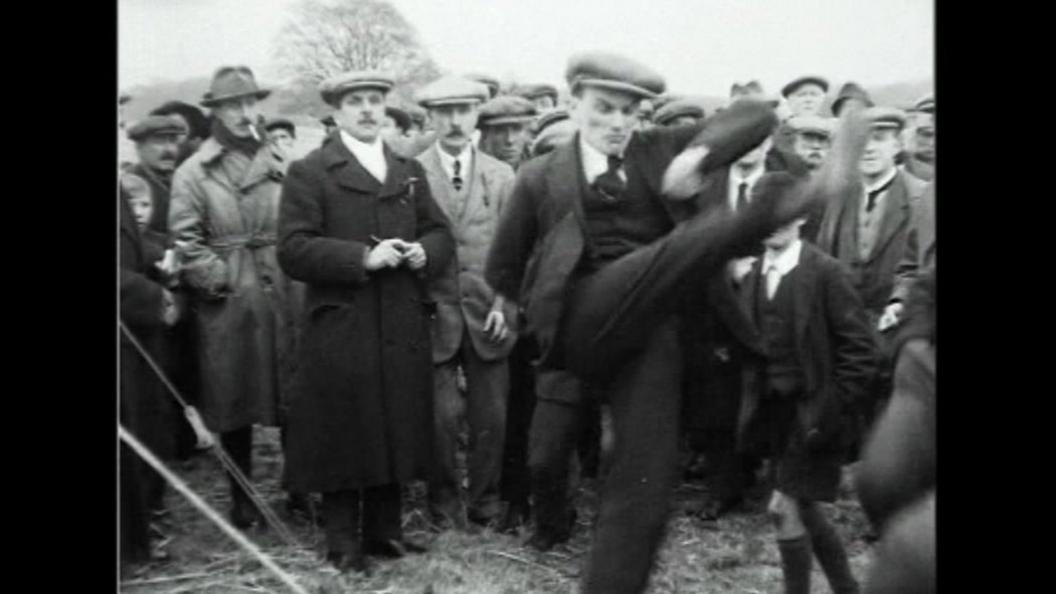Hundreds attend ancient Alnwick Shrovetide game
- Published
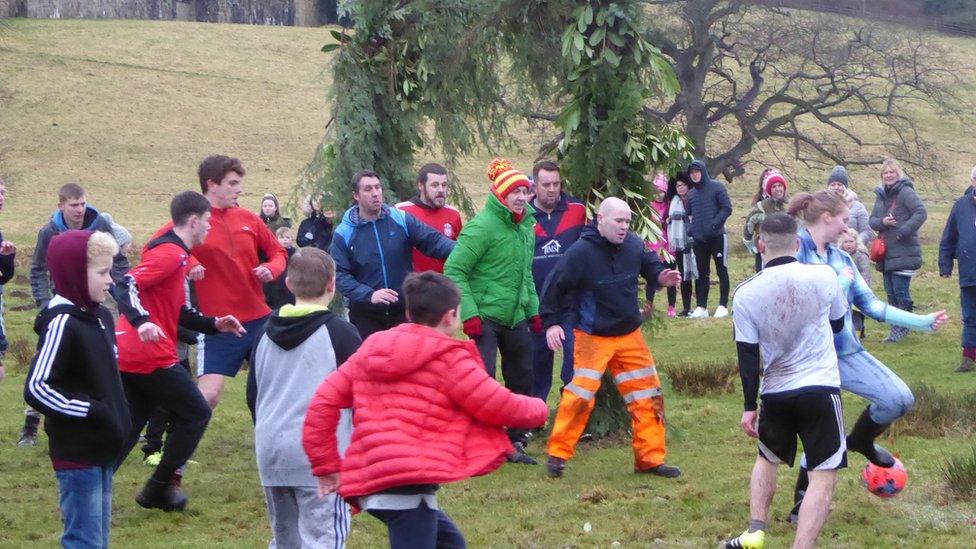
Players in front of the Hales in a recent game
Around 80 people have taken part in a traditional Shrovetide football game dating back to at least 1762.
Several hundred people cheered the players on, with organisers saying they were delighted by the turnout.
The event, in Alnwick, Northumberland, is played on the fields by the River Aln after a procession from the castle.
The ball is kicked into the river at the end, with the person who dives in to retrieve it and then takes it to the other side known as the ball winner.
Record goal scorer Steven Temple, 51, won the ball once again this year, securing his 12th win.
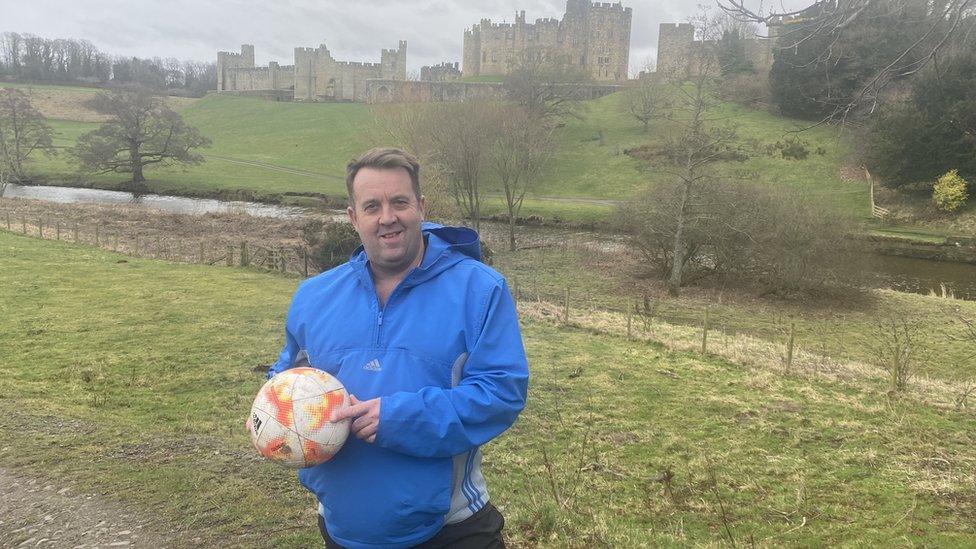
Steven Temple has played more than 30 games and is the leading goal scorer
Mr Temple, who has played in more than 30 games, said the game had been "brilliant".
"Lots of people playing, lots of youngsters, some Americans too," Mr Temple said.
"It was hard work, very wet but a fantastic day. It's a great tradition and something we've got to keep going."
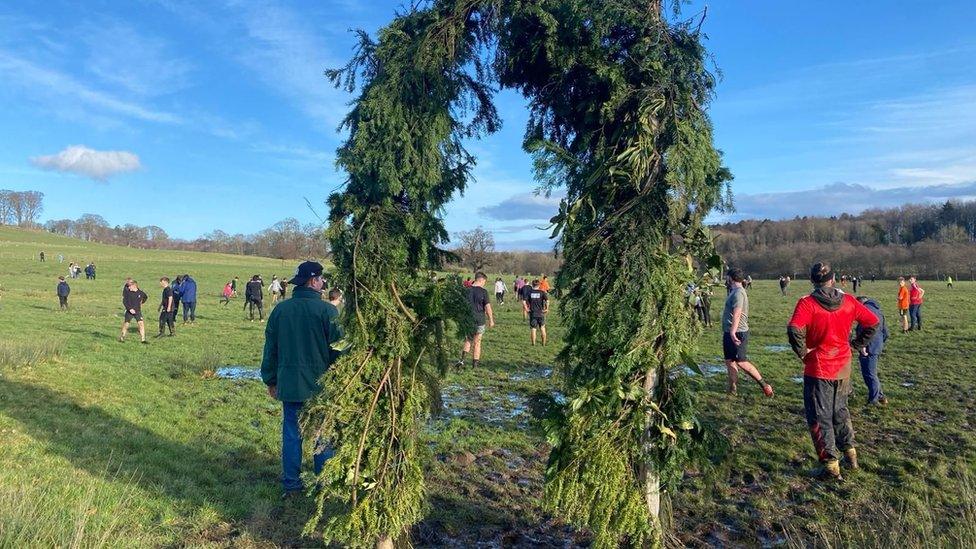
Around 80 people took part in the game
The historic game has virtually no rules and no referee is involved.
Players representing the parishes of St Michael's and St Paul's attempt to get the ball through large goals known as hales.
This year, St Michael's were the winners 2-1.
The responsibility for keeping the tradition alive rests with the Alnwick Shrovetide Football Committee.
Its secretary, Archie Jenkins, has written a book about its history called Temple Again, in recognition of Mr Temple's achievements.
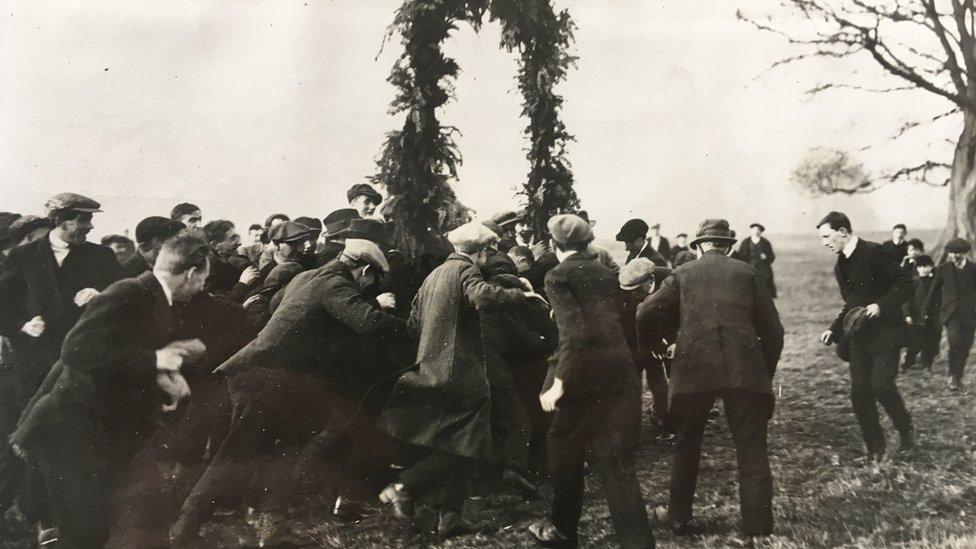
A game in the 1920s. Shrovetide Football in Alnwick dates back to at least the 1700s but probably even earlier
"Before 1800 it would have been played in many towns and cities in the country," Mr Jenkins said.
"But then came industrialisation and the game dwindled and now it's just played in five places in the country.
"It's survived in Alnwick because of the patronage of the Duke of Northumberland and because of the enthusiasm of the lads and lasses of the town.
"Numbers aren't what they were 100 years ago, but we still get a good turnout."
He said the event was part of what makes Alnwick so special.
"Alnwick's got a real castle, it's got the gardens, and it's got the Shrovetide football," he added.
"We do notice the tourists spectating. We have the procession down to the pastures led by the Duke's piper which started in 1828. There's so much ancient tradition involved."
When the game ends, the ball is kicked into the river and players dive in after it, trying to be the first to get it on to the opposite bank.
Players dive into the river Aln to get the ball at the end of the Shrovetide football game
Mr Temple described it as a "shock to the system".
"It's really, really cold and you're also aware that somebody is going to jump on top of you at some point and try and take the ball off you, so you want to get in and get out as quick as possible," he added.
"I tend to try and dive as shallow as possible because you don't know what you're diving into, there could be anything - it's brutal and your whole world changes within a second when you hit the water."
He said this may be his last game because he is getting "older and lazier", but added he would "see what next year brings".

Follow BBC North East on X, external (formerly Twitter), Facebook, external and Instagram, external. Send your story ideas to northeastandcumbria@bbc.co.uk, external
Related topics
- Published25 February 2020
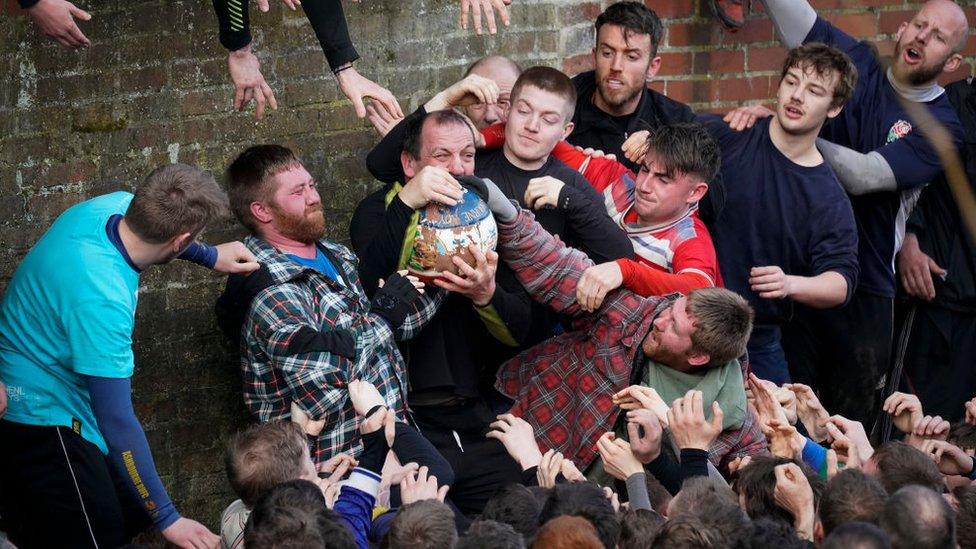
- Published10 February 2016
